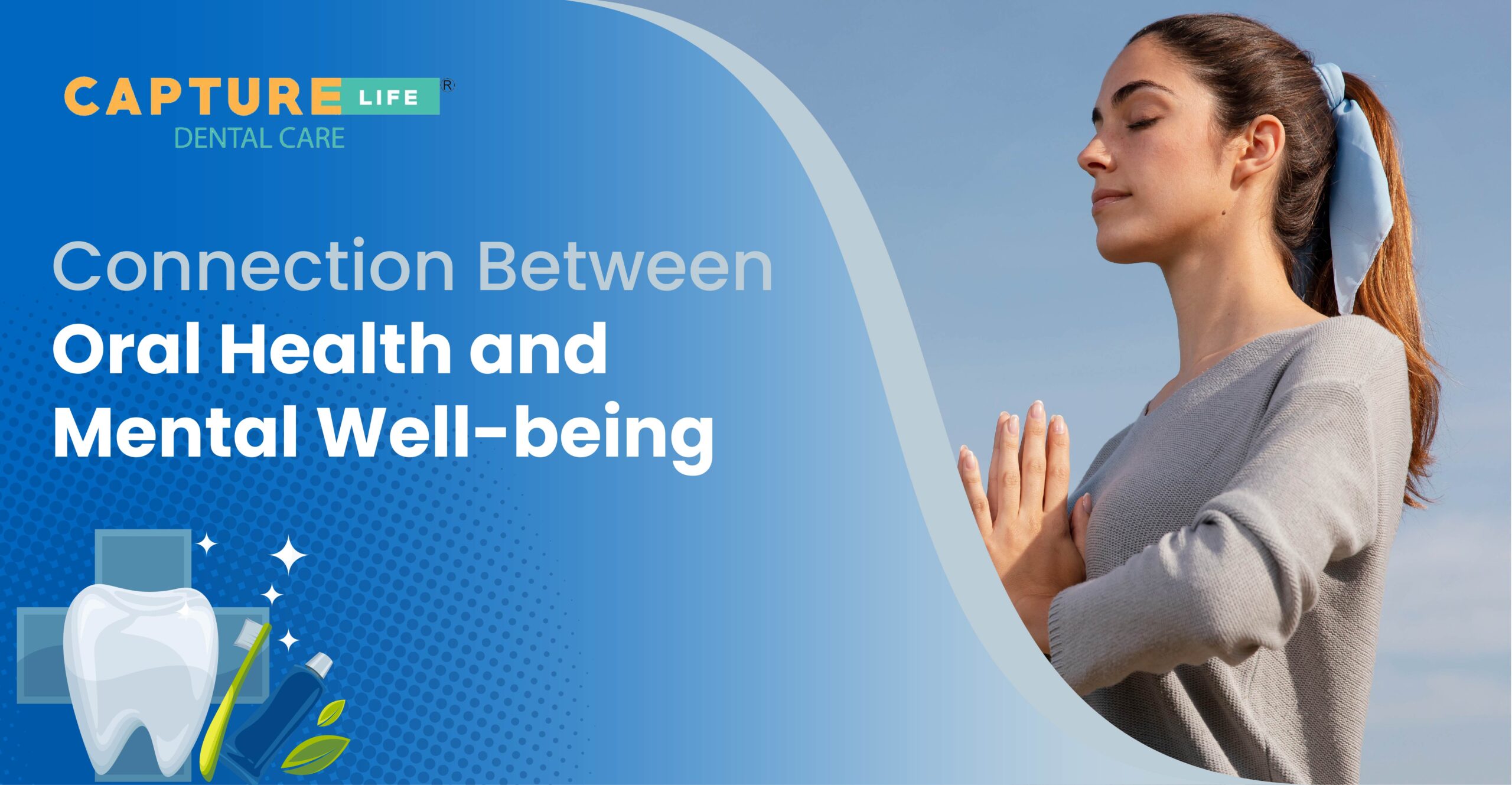
15 Apr Smile Bright, Live Brighter: Connection Between Oral Health and Mental Well-being
The connection between oral health and mental well-being is a fascinating yet often overlooked aspect of overall wellness.
While we may understand the importance of maintaining good oral hygiene for physical health, emerging research suggests that the health of our mouths may also have significant implications for our mental and emotional well-being.
It’s time to prioritize your oral health and well-being. So, schedule your appointment at Capture Life Dental Care today and take the first step towards a brighter, healthier smile and a happier you.
In this blog, we’ll delve into the intricate relationship between oral health and mental well-being, exploring how they intersect and influence each other in profound ways.
The Oral-Systemic Connection
Traditional views of oral health often focus solely on the health of the teeth and gums. However, research in recent years has revealed that oral health is intricately linked to systemic health, including mental well-being.
Poor oral health, such as gum disease, has been associated with an increased risk of various systemic conditions, including cardiovascular disease, diabetes, and even Alzheimer’s disease.
These systemic conditions, in turn, can impact mental health and cognitive function, highlighting the interconnectedness of the body’s systems.
Oral Health and Self-esteem
Our smiles play a significant role in our self-esteem and confidence levels. Individuals with oral health issues such as missing teeth, tooth decay, or gum disease may experience feelings of embarrassment, shame, or low self-worth.
This can have a profound impact on mental well-being, leading to social withdrawal, anxiety, and even depression.
Conversely, maintaining good oral health and a healthy smile can boost self-esteem and contribute to a positive self-image, enhancing overall mental well-being.
Chronic Pain and Psychological Distress
Oral health conditions such as toothaches, jaw pain, and chronic dental issues can cause persistent pain and discomfort.
Chronic pain is not only physically debilitating but can also take a toll on mental health, leading to anxiety, depression, and reduced quality of life.
Individuals experiencing chronic oral pain may also be more susceptible to mood disorders and psychological distress, highlighting the importance of addressing oral health issues promptly to prevent their impact on mental well-being.
Stress and Oral Health
The relationship between stress and oral health is bidirectional, with stress both contributing to and being exacerbated by oral health problems.
High levels of stress can weaken the immune system, making individuals more susceptible to oral infections and gum disease.
Conversely, oral health issues such as toothaches or dental procedures can cause stress and anxiety, further exacerbating existing mental health concerns.
Managing stress through relaxation techniques, mindfulness, and self-care practices can help mitigate its impact on oral health and overall well-being.
The Role of Oral Health in Social Interaction
Our ability to communicate, eat, and engage in social interactions is heavily influenced by the health of our mouths.
Oral health issues such as bad breath, missing teeth, or difficulty chewing can impact social interactions and relationships, leading to feelings of isolation and loneliness.
Conversely, a healthy smile can facilitate positive social interactions, enhance communication, and strengthen social connections, ultimately contributing to better mental well-being.
Seeking Holistic Care:
Recognizing the interplay between oral health and mental well-being underscores the importance of taking a holistic approach to health care.
Integrating dental care with mental health services can provide comprehensive support for individuals experiencing oral health issues with psychological implications.
Additionally, promoting preventive dental care and addressing oral health disparities can help reduce the burden of oral health problems on mental well-being, particularly among vulnerable populations.
Conclusion
The connection between oral health and mental well-being is complex and multifaceted, encompassing physical, emotional, and social aspects of health.
By understanding and addressing this interplay, we can promote holistic wellness and improve the lives of individuals worldwide. Let’s prioritize oral health as an essential component of mental well-being, recognizing its profound impact on our overall quality of life.
Ready to prioritize your oral health and mental well-being? Visit Capture Life Dental Care today for comprehensive dental services that prioritize your holistic wellness. Our experienced team is dedicated to providing compassionate care and personalized treatment plans to help you achieve a healthy smile and peace of mind.

